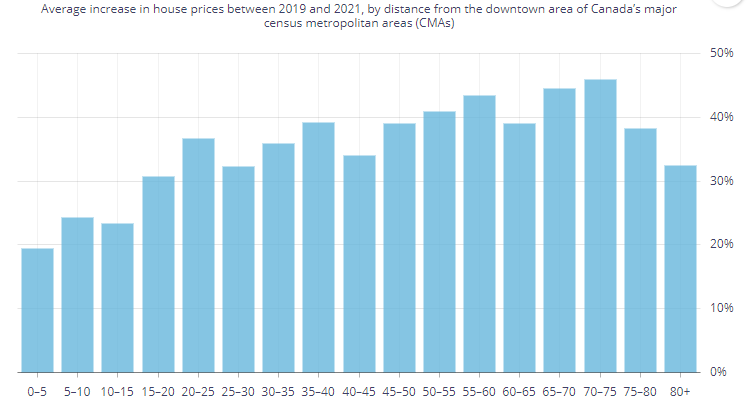Planning on selling your condo? Whether you’re a seasoned seller or a first-timer, setting the right price is essential for a successful sale. Maximizing profit and attracting potential buyers require careful consideration of various factors and a strategic approach.
In this article, we will use Toronto, Canada, as a focal point in explaining the process and dynamics of selling a condo in a major city. We will dive deep and reveal the secrets to pricing your condo (in this case – Toronto condo) for a quicker sale, providing valuable insights to make informed decisions.
Let’s Toronto condo!
Table of Contents:

7 Factors Influencing Condo Pricing
Before exploring pricing strategies, let’s examine the elements that contribute to determining the value of a Toronto condo. Comprehensive knowledge of these factors is crucial for making informed decisions.
1. Location
The condo’s location plays a significant role in determining its value. Desirable neighbourhoods with convenient access to amenities, transportation, and popular attractions often command higher prices.

| Did you know? Homebuyers in Toronto have a significant preference for houses in established neighborhoods close to urban centers, amenities, and transportation lines. This is driving up demand and prices in these areas. |
2. Building Amenities
The range and quality of amenities in the building can affect the pricing of your condo. Facilities such as a gym, swimming pool, concierge service, or rooftop terrace can add value to your property. Also, the price of your condo may be affected by the overall condition of the building as well as your individual unit. Renovations, maintenance, and upkeep all help to determine the worth of your apartment.
3. Floor Level
The floor on which your unit is situated can influence its desirability and pricing. Higher floors often offer better views, privacy, and less noise, which can affect the value.
4. Condo Fees
Prospective buyers consider the monthly condo fees when evaluating the affordability of a property. Striking a balance between fees and the value provided is important, as higher fees may deter some buyers.
5. Number of Bedrooms and Bathrooms
The size and layout of your condo, including the number of bedrooms and bathrooms, can impact its price. Larger units with more bedrooms and bathrooms generally command higher prices.
6. Current Market Conditions
The state of the real estate market in Toronto at the time of selling will influence pricing. Factors like supply and demand, interest rates, and economic conditions can impact the perceived value of your condo.
| Did you know? It is predicted that in 2023, 15% of Canadians want to relocate to another province in search of more affordable housing. People who do not own their own homes are twice as likely to move. |
7. Market Demand
The demand for condos in the current market climate should also be considered. High demand can lead to increased competition among buyers, potentially driving up prices. Now that we have a good grasp of the factors affecting condo pricing, let’s proceed to the next step.

Understanding the Impact of Price and Timing
Getting the pricing strategy right from the start is crucial when selling a condo. The longer your condo sits on the market, the less attention it will attract from potential buyers. To maximize your possibility of a quick sale, it’s essential to consider the following:
Early Activity
When a listing first hits the market, it usually generates a surge of interest from potential buyers. This initial period presents the best opportunity to receive offers. Setting an attractive price from the beginning helps generate early activity.
Balancing Urgency and Value
Your initial price should be compelling enough to entice buyers and pique their interest, while still reflecting the value your condo offers. Striking the right balance ensures a faster sale without compromising your profit.
Avoiding Stagnation
Overpricing your condo can result in an extended period on the market. As time passes, buyer interest tends to diminish, making it harder to attract offers. Finding the sweet spot in pricing helps prevent stagnation.
Adapting to Market Conditions
Real estate markets are dynamic, and conditions can change. Your agent will monitor the market and advise you on adjusting the price if necessary. Being open to modifications can help you stay competitive.
Considering these factors, it’s important to find a pricing strategy that aligns with your goals and market conditions.

Exploring Pricing Strategies
Pricing strategies are a very important part of the real estate market, especially when selling a condo in Toronto. As a condo owner, it’s important to know the different ways to price your apartment to make the most money and draw buyers. In this piece, we’ll talk about two common ways to price your condo: charging a high price and charging a low price.
Pricing Your Condo High:
In a balanced or seller’s market, pricing your condo slightly above market value can be an effective strategy. It signals confidence in the value your property offers. Consider the following pros and cons:
Pros:
- Possibility of receiving offers higher than market value, maximizing your profit.
- Pricing slightly above market value can motivate buyers to make offers and engage in negotiations.
Cons:
- Overpricing may discourage potential buyers from making any offers.
- Buyers looking for condos in a slightly lower price range might overlook your listing, resulting in an extended time on the market.
Pricing Your Condo Low:
This strategy involves listing your condo at a lower price than its market value. It aims to attract multiple interested buyers and potentially ignite a bidding war. Here are the pros and cons:
Pros:
- A lower price can generate significant interest from a broad pool of buyers, increasing the chances of multiple offers.
Cons:
- In a buyer’s market, a low price might raise concerns about the condition or value of your condo.
- You may receive offers lower than anticipated if a bidding war doesn’t materialize.
- If your condo sits on the market for an extended period, buyers may perceive it as undesirable or doubt its true value.
| Did you know? The ultimate sales price is often at least 10% more than the asking price in a seller’s market. |
Ultimately, the best pricing strategy depends on your unique circumstances, comfort level, and risk tolerance. Working closely with your agent, you can determine the most suitable approach for your Toronto condo.
The Role of an Experienced Agent in Pricing a Condo
Navigating the intricacies of pricing a Toronto condo requires expertise and experience. Collaborating with an experienced real estate agent who understands the local market dynamics can significantly simplify the process. Here’s why an agent’s involvement is crucial:
An experienced agent possesses in-depth knowledge of Toronto’s real estate market. They are familiar with the latest trends, neighbourhood-specific insights, and buyer preferences. This expertise allows them to guide you effectively in pricing your condo.
Agents have their fingers on the pulse of potential buyers. They understand what features and price ranges attract buyers, enabling them to strategically position your condo. An agent offers an unbiased perspective on your condo’s value. They can assess its strengths and weaknesses objectively, allowing you to make informed decisions when setting the price.
Agents conduct comprehensive market analyses to determine the appropriate price range for your condo. They consider factors like recent sales, market trends, and comparable properties, ensuring you have a well-rounded pricing strategy.
Negotiating with potential buyers is a critical skill that experienced agents possess. They advocate for your best interests, striving to secure the highest possible price for your condo during negotiations. By leveraging their expertise, an experienced agent becomes your ally throughout the selling process. They provide invaluable insights and guide you toward the most favourable outcome.

FAQ
Is it a good time to sell a condo in Toronto?
The best time to sell a condo in Toronto depends on various factors, such as market conditions, your personal circumstances, and the specific location of your condo. It’s recommended to consult with a real estate professional to make an informed decision.
How should I price my condo for sale in Toronto?
Pricing your condo involves considering factors like the current real estate market, the condition of your condo, and comparable sales in your area. It’s crucial to price it competitively to attract potential buyers.
What steps should I take to prepare my condo for sale?
Preparing your condo for sale involves reviewing the rules and regulations of your condo association, obtaining a status certificate, decluttering and staging your condo, and targeting the real estate market effectively.
How long should I keep a condo before selling it?
The length of time you should keep a condo before selling it can vary based on market conditions and your personal situation. However, it’s generally recommended to hold onto real estate investments for at least a few years to potentially gain from property appreciation.
What are the costs associated with selling a condo in Toronto?
The costs of selling a condo in Toronto can include realtor commissions, legal fees, and potential staging costs. On the upper end, it could cost you anywhere between $10,000 – $12,000 + 5% realtor commission to sell your condo in Ontario.
What is the importance of staging when selling a condo?
Staging can help potential buyers visualize themselves living in the space, making your condo more appealing. It can potentially help sell your condo faster and for a higher price.
What is a status certificate, and why is it important when selling a condo?
A status certificate is a document that provides detailed information about the financial and legal health of the condo corporation. It’s important because potential buyers will want to review it before making an offer.

Selling Your Condo – Final Words
Selling your Toronto condo requires a well-thought-out pricing strategy. Understanding the factors that influence condo pricing, collaborating with an experienced real estate agent, and considering market timing is vital to achieving a successful sale. Remember, pricing is not a one-size-fits-all approach; it depends on your unique goals, market conditions, and risk tolerance.
By working closely with a knowledgeable agent, you can navigate the intricacies of the Toronto real estate market and make informed decisions that maximize your profit. Get ready to embark on your condo-selling journey armed with the insights you’ve gained, and make your sale a swift and rewarding experience.













